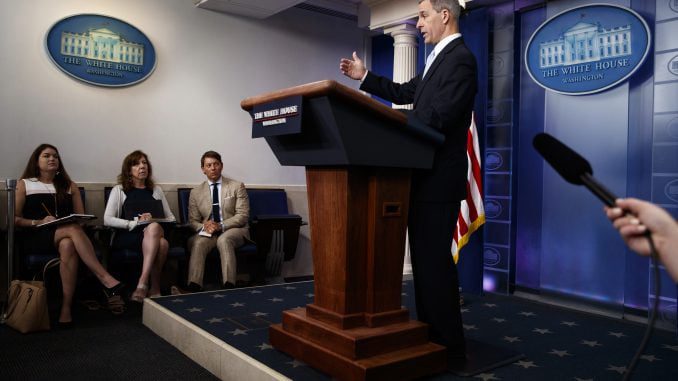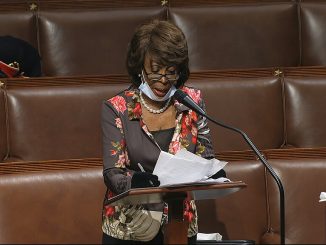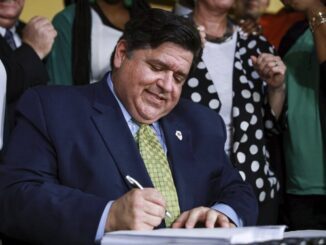
WASHINGTON, D.C. — The Trump administration, on Monday, announced that it will deny access to immigrants who would be dependent on the county’s public benefits system.
Federal law already requires those seeking to become permanent residents and gain legal status to prove they will not be a burden to the U.S. — a “public charge,” in government speak — but the new rules detail a broader range of programs that could disqualify them. The requirement for self-sufficiency has been a part of the U.S. immigration laws since 1882 and was included in the 1952 Immigration and Nationality Act. In the 1990s, the Clinton administration supported legislation that reliance on cash benefit programs could be considered when determining whether an alien was a public charge. That legislation also made it official policy that aliens should “not depend on public resources to meet their needs.”
The new rule is part of an overhaul of the nation’s immigration system that the administration has been trying to put into place. While much of the attention has focused on President Donald Trump’s efforts to crack down on illegal immigration, the new change affects people who entered the United States legally and are seeking permanent status. It is part of an effort to move the U.S. to a system that focuses on immigrants’ skills instead of family contacts.
U.S. Citizenship and Immigration Services will now weigh public assistance along with other factors such as education, household income and health to determine whether to grant legal status.
The acting director of Citizenship and Immigration Services, Ken Cuccinelli, said the rule change fits with the Republican president’s message.
“We want to see people coming to this country who are self-sufficient,” Cuccinelli said. “That’s a core principle of the American dream. It’s deeply embedded in our history, and particularly our history related to legal immigration.”
Immigrant rights groups strongly criticized the changes, warning the rules will scare immigrants into not asking for help. And they are concerned the rules give too much authority to decide whether someone is likely to need public assistance at any time, giving officials the ability to deny legal status to more people.
On average, 544,000 people apply annually for green cards, with about 382,000 falling into categories that would be subject to this review, according to the government.
Guidelines in use since 1999 refer to a public charge as someone primarily dependent on cash assistance, income maintenance or government support for long-term institutionalization.
Under the new rules, the Department of Homeland Security has redefined a public charge as someone who is “more likely than not” to receive public benefits for more than 12 months within a 36-month period. If someone has two benefits, that is counted as two months. The definition has been broadened to include Medicaid, housing assistance and food assistance under the Supplemental Nutrition Assistance Program, or SNAP.
Green card hopefuls will be required to submit three years of federal tax returns in addition to a history of employment. If immigrants have private health insurance, that will weigh heavily in their favor.
The new rule will be officially published to the Federal Register on Wednesday and will likely go into effect in October.



